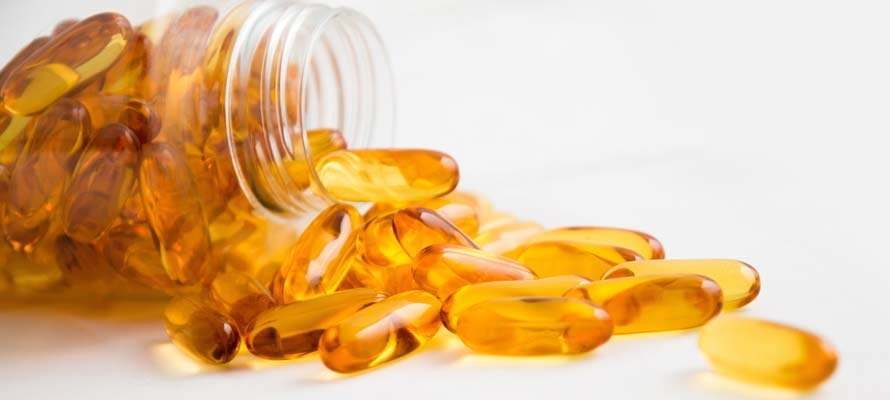
One of our top selling supplements we sell on our site is Fish Oil, however there are a huge amount of questions from customers each day, therefore we thought we’d list our answers to some of them below.
What Are Essential Fatty Acids?
Often shortened to EFA’s when looking at a nutritional breakdown, essential fatty acids are the ‘good fats’ and are hugely important for the function and structure of each cell in your body. They are incredibly important to your overall health, your hormone production as well as your hair and nails.
What Are The Benefits To Taking Fish Oil?
You can expect numerous health benefits from taking these supplements or getting it through your diet. For example, it can help keep your heart healthy, it helps with certain mental disorders, eye health, it can boost weight loss, it has anti-inflammatory properties, it can reduce liver fat and has even been shown to improve symptoms in people suffering from depression.
Does Fish Oil Help Sexually?
Among chief factors, one of the biggest issues facing sexual performance can be related to a loss in testosterone levels, however omega 3 can directly help to solve this, as well as helping with depression, increasing your metabolism and supporting the cardiovascular system. There have also been numerous studies that have shown a connection between omega 3 supplementation and an increase in both sperm quality and sexual function.
When Should Fish Oil Be Taken?
Some studies have shown it is better to take fish oil in the morning, while others have shown in the evening. The important factor is that you are getting it into your system, therefore I would worry less about the best time of day and focus on getting the required amount at a time that suits you.
Who Should Take Fish Oil?
We should all be getting fish oil through our diet, by eating fish once or twice per week, however not everyone is successfully reaching these levels, therefore supplementation can help. With this in mind, anyone that is failing to get the required quantity of essential fatty acids should be taking this on a regular basis.
Are Fish Oil Supplements Worth It?
You should consult a professional for advice based on your personal condition, however this is a popular option for those that fail to get essential fatty acids in their diet, especially people on strict diets.
Which Fish Oil Supplements Should I Be Using?
Higher Nature has a great fish oil, while there are also great options by Biocare and Lamberts.
Will Fish Oil Give You Gas?
This won’t occur for everyone, but as with any supplement, there can be side effects and one of those associated with this product can be digestive symptoms including flatulence and belching. We recommend starting slowly when you start and monitoring how your body reacts.
Can You Take Fish Oil And Vitamin D Together?
Certainly, in fact these two are often placed together. Vitamin D requires a fat source in order to help it be absorbed by the body, therefore it is a perfect combination, especially with multiple studies recently claiming we are not getting enough Vitamin D in our bodies, especially during the winter months.
What Are The Side Effects Of Fish Oil?
While everyone can react differently, you may experience certain symptoms, from minor to a bit more severe. You may find you have an increased blood sugar level, while it could actually lower your blood pressure, which is beneficial for many but needs to be considered if you already have low blood pressure. Some experience digestive issues such as flatulence, diarrhoea, belching and stomach discomfort. Of course, the final point is to be cautious of how much Vitamin A you are consuming, as there tends to be a large amount in cod liver oil.
How Long Does Fish Oil Take To Work?
If you are taking it on a regular basis then you may expect to see results after 2-3 months. Of course, this will vary between people and it also depends very much on your dosage and regularity, as well as the condition your body is in.
How much fish oil should I take daily?
There isn’t actually an exact amount that is completely agreed upon. Several organisations have generally agreed on a vague amount, that you should be getting a minimum of 250-500mg each day. However if you are having fish a couple of days per week, you could be getting more on one day and less the next.

 News
News
 Recipes
Recipes
 Competitions & Giveaways
Competitions & Giveaways
 Favourite Things
Favourite Things
 Cats & Dogs
Cats & Dogs
 Deals & Offers
Deals & Offers
 Reviews
Reviews
 FAQ's
FAQ's
 Outside the Box
Outside the Box
